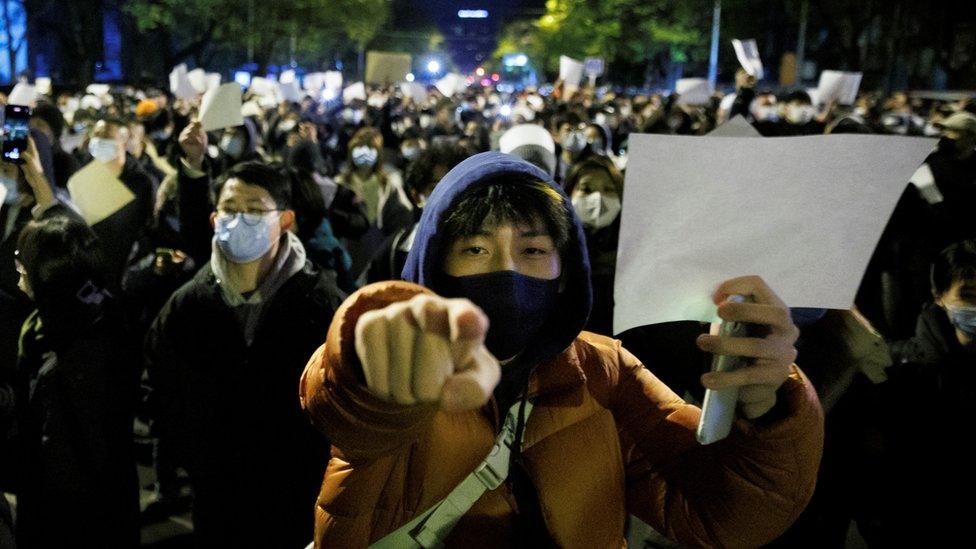Jiang Zemin death: Cloaking Xi dissent in nostalgia for a different China
- Published
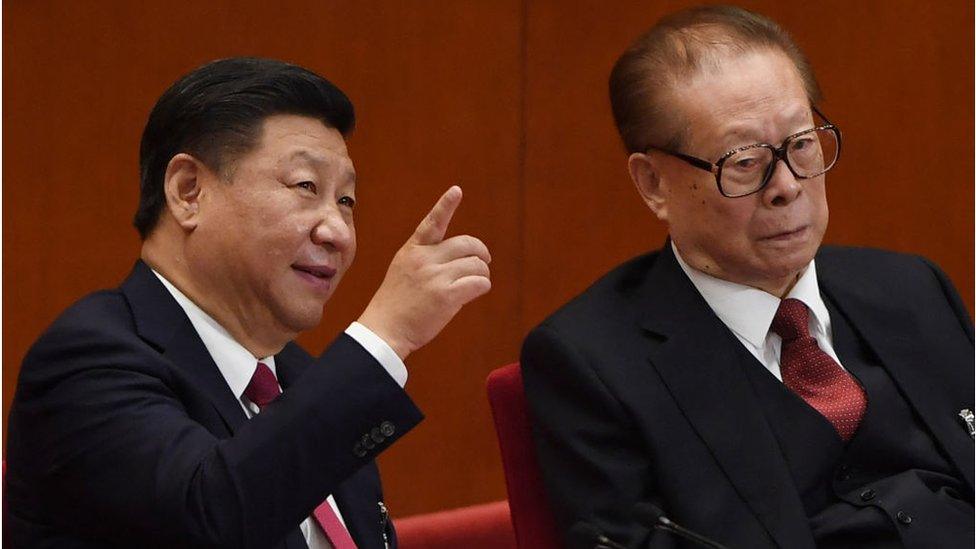
Xi Jinping was seated next to Jiang Zemin at the 2017 Communist Party Congress
Following a series of unprecedented protests against Covid restrictions, Jiang Zemin's death comes at an uncertain moment for China.
As someone inextricably linked to Tiananmen - he came to power shortly after the brutal crackdown of the protests - Jiang's passing is not just a reminder of that period of national trauma as the country sees its most serious protests since 1989.
It has also inevitably fuelled criticism of the current leadership, where nostalgia for Jiang is as much an indictment of Xi Jinping and the way he has led China.
Many of the tributes paid online by the Chinese to Jiang have been cast as digs at Xi. There are reports that searches for a song titled Pity It Wasn't You have been censored on some portals, while others have used comments about "Grandpa Jiang" to criticise Xi.
Even before his death, Jiang had unusual appeal among younger Chinese who had little memory of his actual rule, and viewed him as a lovable, irascible grandad.
Part of this could be down to his colourful personality, which stood in contrast to Xi's carefully constructed, bland image.
Talkative and spontaneous, Jiang was not averse to political showmanship - on a trip to the US he decided to go for an unplanned morning swim on Waikiki Beach, external, in a show of vitality as he faced rumours of ill health.
In 2000, he famously jumped up from his seat in Beijing's Great Hall of the People during a press photo call, strode over to journalists who had been calling out questions, and delivered a vigorous diatribe.
Jiang's unfiltered exasperation - unimaginable for Xi - lives on forever online,, external where it has birthed many a comical meme and fed the internet subculture built around him, known as "moha wenhua" or "toad worship".
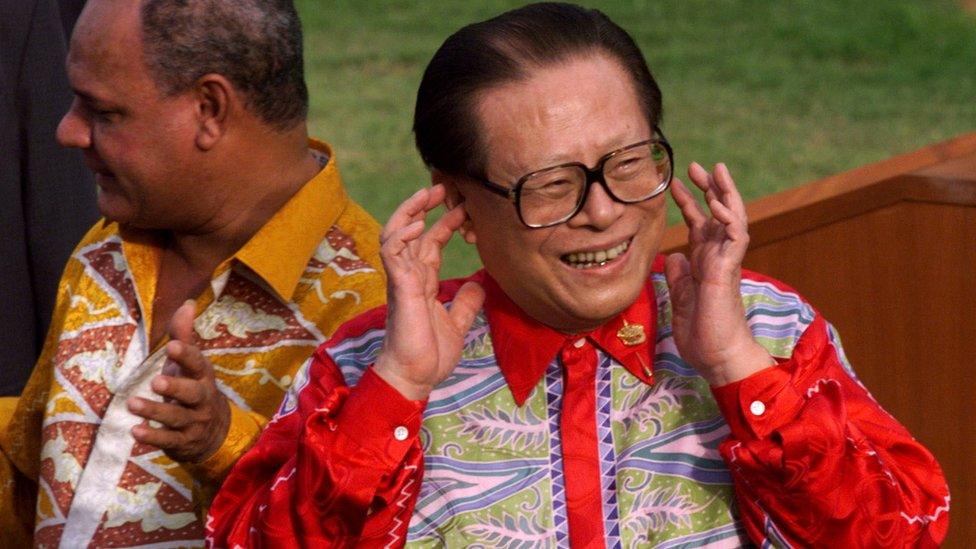
Jiang was known for his colourful personality which stood out from recent Chinese leaders
As China grapples with slower growth, rising tensions with the West, and the crushing weight of zero-Covid restrictions, Jiang's death has sharpened nostalgia for a bygone pre-Xi era.
It was a China marked by rising prosperity driven by high growth, and openness, as the country became enmeshed in the global economy and sought to repair its international reputation following Tiananmen.
Jiang was open to mending fences with the US after major diplomatic incidents, pledging support in the wake of 9/11 and making several trips to meet presidents Bill Clinton and George W Bush.
Former Singaporean diplomat Kishore Mahbubani recalled witnessing a meeting between Jiang and then US president Clinton at a summit in 1993.
"Both men were incredibly charming. And what was supposed to be a hot confrontation turned out to be a very warm encounter," he told the BBC. "And that I think was Jiang Zemin's biggest contribution. He was not the economic genius… but he provided the political cover and framework and did a brilliant job."
What has also fuelled the comparison with Xi is the view that the latter is unwinding Jiang's reforms, as he tightens control over the economy and the Communist Party.
"Even though Jiang Zemin played a key role in elevating Xi Jinping to the top of the leadership, Xi Jinping has been following a line of economic and political policy quite contrary to those of Jiang Zemin and also [Jiang's predecessor] Deng Xiaoping," said Willy Lam, a professor at the Chinese University of Hong Kong and author of a book on Jiang.
"Xi Jinping, for the past 10 years, has been seen as reviving many of the draconian tactics and philosophies of Mao Zedong. So in a sense, we can say that Jiang Zemin made a big mistake in picking Xi Jinping," Mr Lam told the BBC.
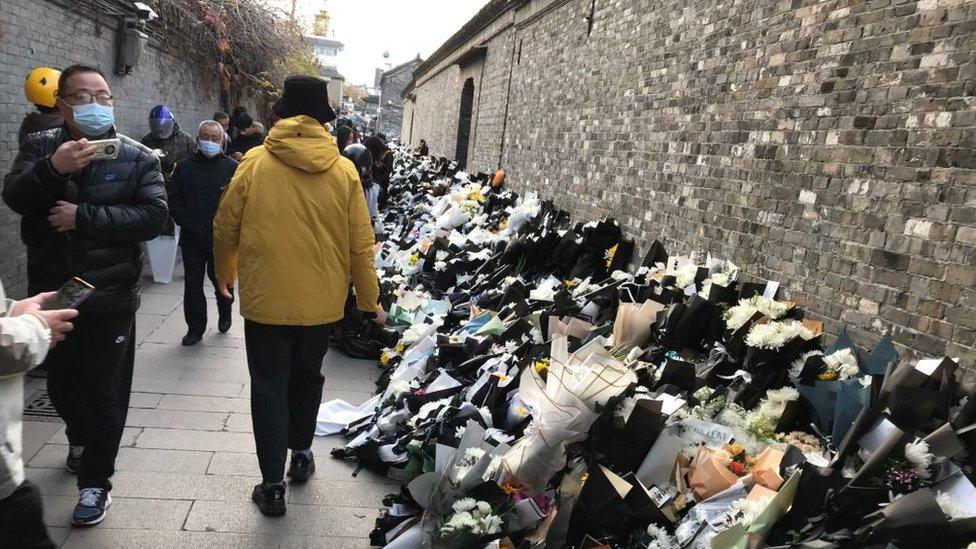
People left flowers outside Jiang's former home in the city of Yangzhou
But there have also been warnings against viewing Jiang through rose-tinted glasses in the rush to castigate Xi, and reminders that Jiang pushed aside political reform after Tiananmen.
"Now because of Xi Jinping, many people miss the Jiang Zemin era. This is because they do not understand history," tweeted former Tiananmen student leader Wang Dan.
Compared to Xi, Jiang "is definitely a lot better", but "the young completely do not understand who Hu Yaobang and Zhao Ziyang were, compared to them [Jiang] is far worse," said Mr Wang, referring to reformist Chinese leaders from the Tiananmen era.
OBITUARY: Jiang Zemin
TIANANMEN SQUARE: What happened in the protests of 1989?
The public's affection for Jiang, however, remains undimmed. In the hours after the announcement of his death, mourners laid bouquets of flowers outside Jiang's childhood home in the city of Yangzhou.
On Thursday, hundreds in Shanghai jostled to glimpse a vehicle thought to be transporting his body, prompting the police to close off some roads, according to reports.
But on Wednesday night, a vigil for Jiang organised in the city failed to materialise amid continued heavy security presence. As Jiang's former power base and where he died, Shanghai has also been an epicentre of dissent against Covid restrictions.
China expert Bill Bishop has argued that it is possible "that the weekend protests and the fast quelling of them turn out to be fortuitous to Xi, as the response reminded many people of the costs of speaking up publicly".
Still, all eyes remain on China's major cities, as many wait to see if there will be large displays of public mourning that could turn into protests.
Back in 1989, thousands of young Chinese gathered on the streets of Beijing to mourn the sudden death of Hu Yaobang, leading to clashes with authorities that blossomed into large-scale demonstrations.
Once again, a beloved leader has died at a moment when the country is clamouring for reform and freedom. The memory of Tiananmen looms large.
- Published30 November 2022
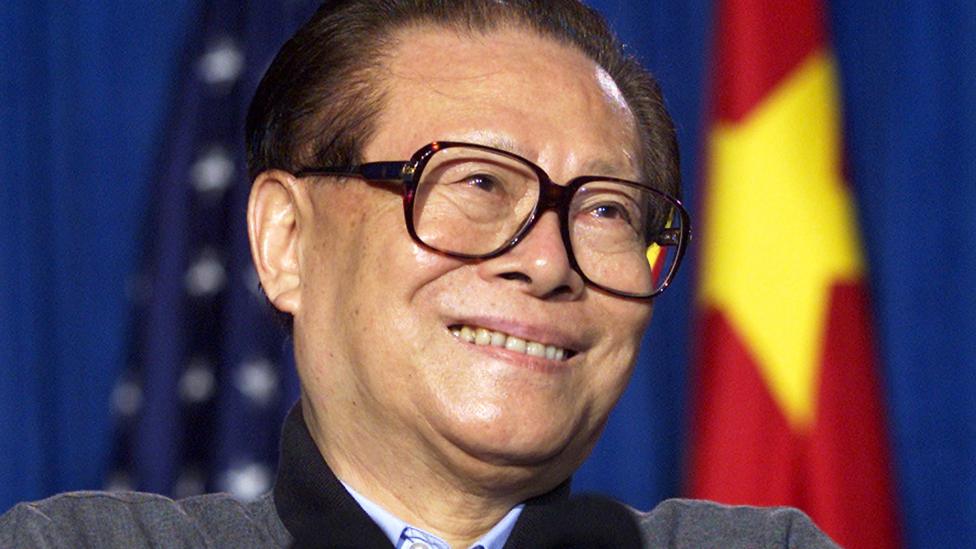
- Published30 November 2022
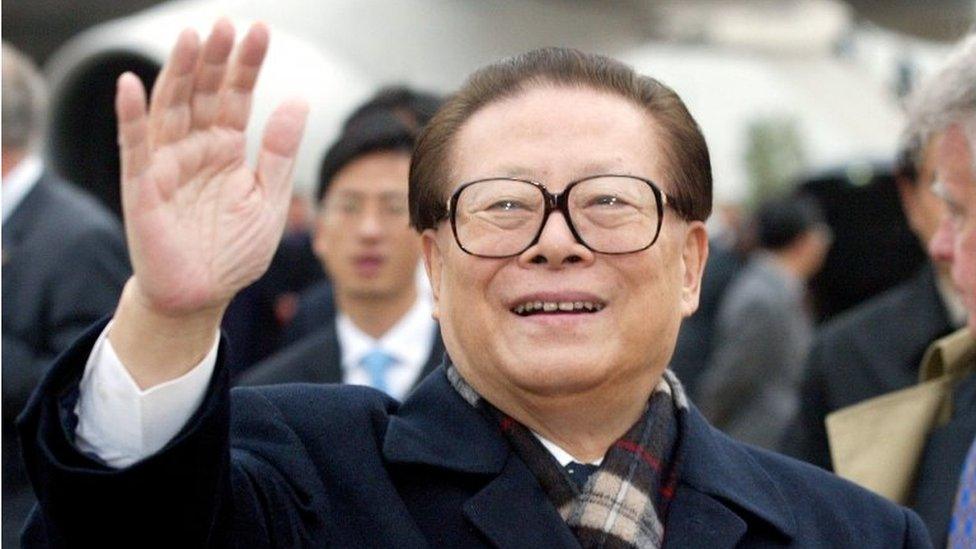
- Published30 November 2022
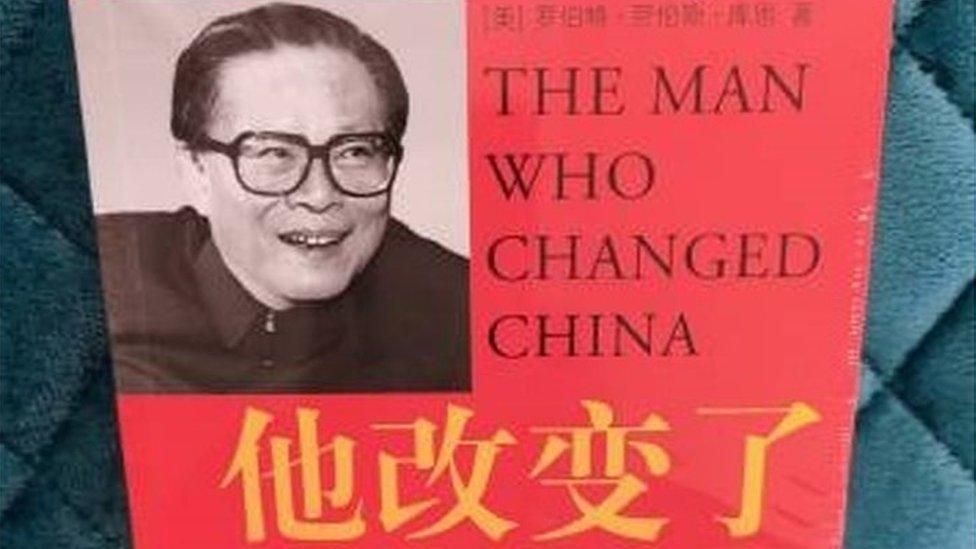
- Published28 November 2022
